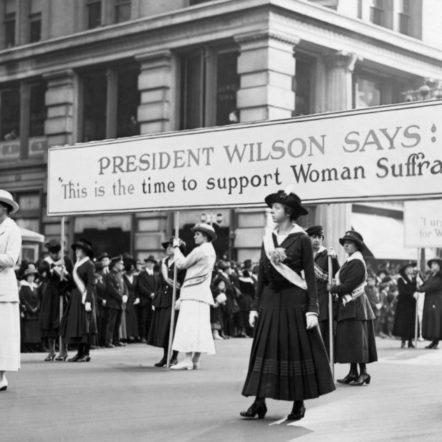The history of men’s attitudes toward women has been, in a word, shameful. In the beginning, at the dawn of cognition, men concluded that women caused them to sin, and then stereotyped women as wicked and projected lustful male thoughts on them: “I want her” became “She wants me.” “I am excited by the way she dresses, stands, sits, moves” became “She is deliberately trying to excite me.” Several millennia later, that excuse evolved to “She’s asking for it.”
Such self-excusing judgments led men to segregate women in community gatherings, schools, workplaces, and houses of worship. In various ages, women who rebelled against their second- or third-class status were charged with heresy or witchcraft and stoned to death or burned at the stake.
Along with the idea that women were more prone to sin than men came the related notion that women are by nature less intelligent, less rational, more emotional, and therefore less educable than men. Untold generations of men across countless cultures believed this, imposed it on their wives, and taught it to their daughters. They also structured education to deny women access, especially to advanced levels of learning.
It is important to understand that over the centuries low esteem for women was held, not by a small group of influential men, but by virtually all men. Given the unrelentingly negative accusations they encountered, it could not have been otherwise. Boys grew up seeing how their mothers and sisters were treated, even by otherwise loving and caring husbands and fathers who had learned that behavior from their fathers and grandfathers, who had learned it in the same way from theirs. This powerful shaping force of male attitudes has impacted thousands of generations.
Despite women’s rights advocacy in places like ancient Greece, significant advances took much longer to occur. The Suffragette Movement in the U.S. began in the mid-19th century and U.S. women only won the right to vote in 1920, after women in New Zealand, Australia, Finland, and England had won it. And it took another four decades for women to begin receiving equal pay for equal work. The leading champion of this battle was the Feminist Movement, unfortunately better known for supporting abortion, which denies female as well as male babies the right to life.
But changing societal attitudes toward women has proved more difficult than changing laws. Long after the late-19th and early 20th century achievements in women’s rights, the old stereotypes and discriminatory practices continued.
Well beyond the mid-twentieth century, high school guidance counselors still made college recommendations by gender rather than academic achievement. They typically urged boys to consider college programs in engineering, medicine, business administration and law, while limiting girl’s choices to nursing, teaching, and secretarial employment. And when a young woman resisted that counsel and pursued a “male major” in college, she often found the same disparaging attitudes among professors. A young woman I knew who chose a career in pharmacology in 1953 told me that more than a few professors would tell her and other female students that they would never call on them in class because “I know you are only here to find husbands.”
In those days, the possibility of women’s competence in sports was similarly rejected. The closest most young women came to athletic competition was trying out for the cheerleading squad, whose members simply jumped about wildly while screaming encouragement to male athletes.
In some ways male attitudes toward women actually worsened in the mid-twentieth century. There were two prominent reasons for this development. One was the publication of Alfred Kinsey’s pseudo-scientific tomes on sexuality in males and females, which gave false validation to the ancient male fantasies, “She wants me,” “She is deliberately behaving this way to excite me,” and “She’s asking for it.” The other was Kinsey-devotee Hugh Hefner’s Playboy Magazine, which featured smutty talk and “tastefully” nude photos designed to persuade men that women’s main purpose in life is to provide sexual pleasure to men. (Sadly, a good number of women also bought that idea.)
One underlying message in the Kinsey/Hefner narrative, always implied and sometimes baldly stated, was that whenever a woman says “No” she really means “Yes.” That notion, already present in some men’s fantasies, became a firm conviction for many men, particularly those in positions of power. The result has been the sexual harassment and rape scandals so often featured in the news.
The subject of this essay is not pleasant to discuss or read about, particularly for men. And when women bring it up—even in scholarly analysis—a common response is to accuse them of emotional exaggeration. Yet the subject is eminently worth discussing because men’s historically negative attitudes toward women have not only been unfair but stupid as well, for they have deprived humankind of half its talent; and while significant progress has been been made to overcome that tragic error, much remains to be done. An important first step, especially for men, would be to read English Poet Laureate John Masefield’s moving ode to his mother, C.L.M., which ends with the line “O grave, keep shut lest I be shamed.” (Read the poem here.)
Copyright © 2022 by Vincent Ryan Ruggiero. All rights reserved








